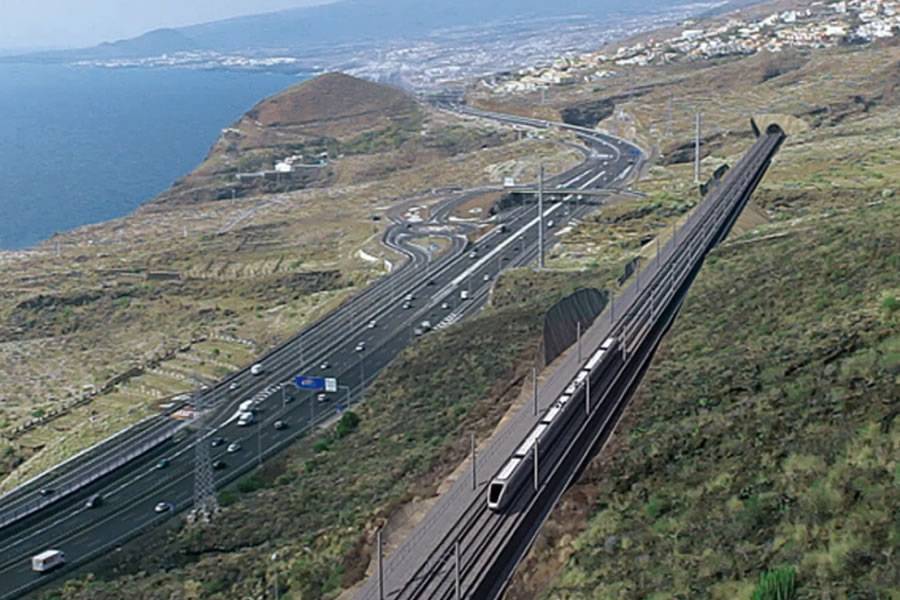Canary Islands Government plans train construction starting in 2027
- 20-06-2024
- National
- Canarian Weekly
The Canary Islands Government has announced plans to start construction of train lines in Tenerife and Gran Canaria by 2027. This update was shared by Pablo Rodríguez, the Regional Minister of Public Works, during a presentation on the sustainable roadmap outlined by his department through 2040.
Rodríguez emphasized that, after two decades of discussion, the train projects are closer to becoming a reality, largely due to the decision to break the projects into manageable phases.
He noted that instead of needing an estimated 4 billion euros for the entire construction, the new approach involves financing segments costing around 300 to 400 million euros each, which are more financially feasible.
Awaiting European Funding:
The Gran Canaria train project, the most advanced among the Canary Islands, is expected to benefit from European Union funding. Rodríguez highlighted that the success of the grant application by Ferrocarriles de Gran Canaria will significantly influence the project's progress.
He expressed optimism that, if the European subsidy is granted, the first segment of the Gran Canaria train could be tendered within the current legislative term.
In a bid to secure consistent funding, the Canary Islands Government and local councils are working to integrate the Canary Islands rail network into the national rail system. María Fernández, the General Director of Transport for the Canary Islands, mentioned ongoing efforts with the Ministry of Transport and Sustainable Mobility to ensure the islands' trains are included in state investment plans.
This collaboration aims to establish a stable financing mechanism, such as a program contract or an agreement, to avoid the uncertainties of budget-by-budget negotiations.
State-Level Negotiations:
For the first time, a technical meeting with the Ministry of Transport has laid the groundwork for legislative recognition and investment strategies for the Canary Islands' train systems. Minister Óscar Puente acknowledged the importance of trains for the islands, comparing their necessity to other national projects, despite the population density in the Canary Islands being significantly higher.
Sustainable Mobility Law:
The Department of Public Works is currently developing a tool to secure stable funding for the train projects, hoping to incorporate it into the upcoming general budgets and the Sustainable Mobility Law, which is nearing approval by the Congress of Deputies.
The law aims to address mobility, development, and sustainability through active public participation, ensuring it meets the needs of both citizens and businesses. It will include provisions for essential road and intermodal infrastructure to promote more efficient, sustainable, and environmentally friendly transportation.
The initial segments for Gran Canaria's train line will run between Vecindario and the airport, while in Tenerife, the route will be defined between San Isidro and Las Américas in the south of the island.
Other articles that may interest you...
Trending
Most Read Articles
Featured Videos
TributoFest: Michael Buble promo 14.02.2026
- 30-01-2026
TEAs 2025 Highlights
- 17-11-2025



























































